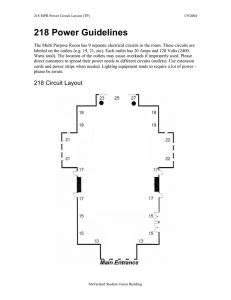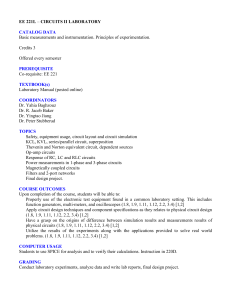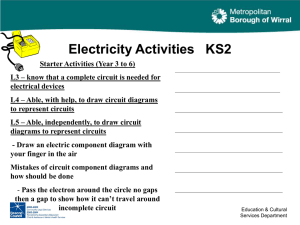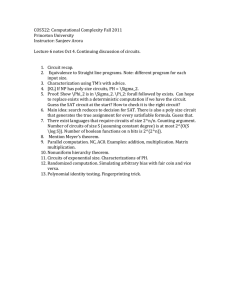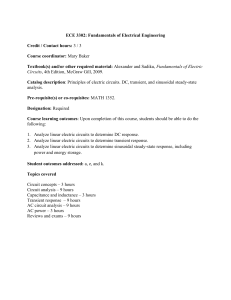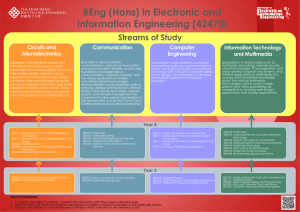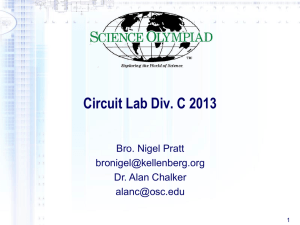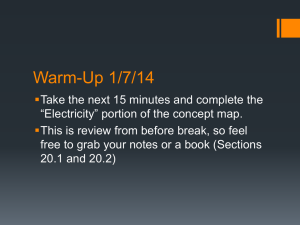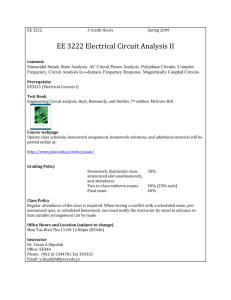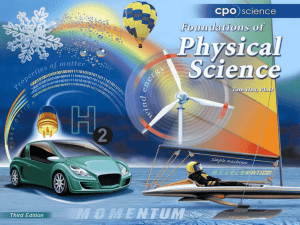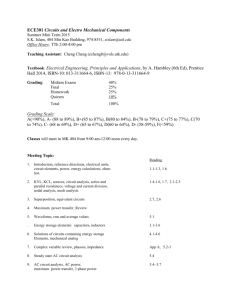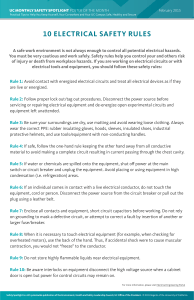ee 421l – digital integrated circuit design laboratory
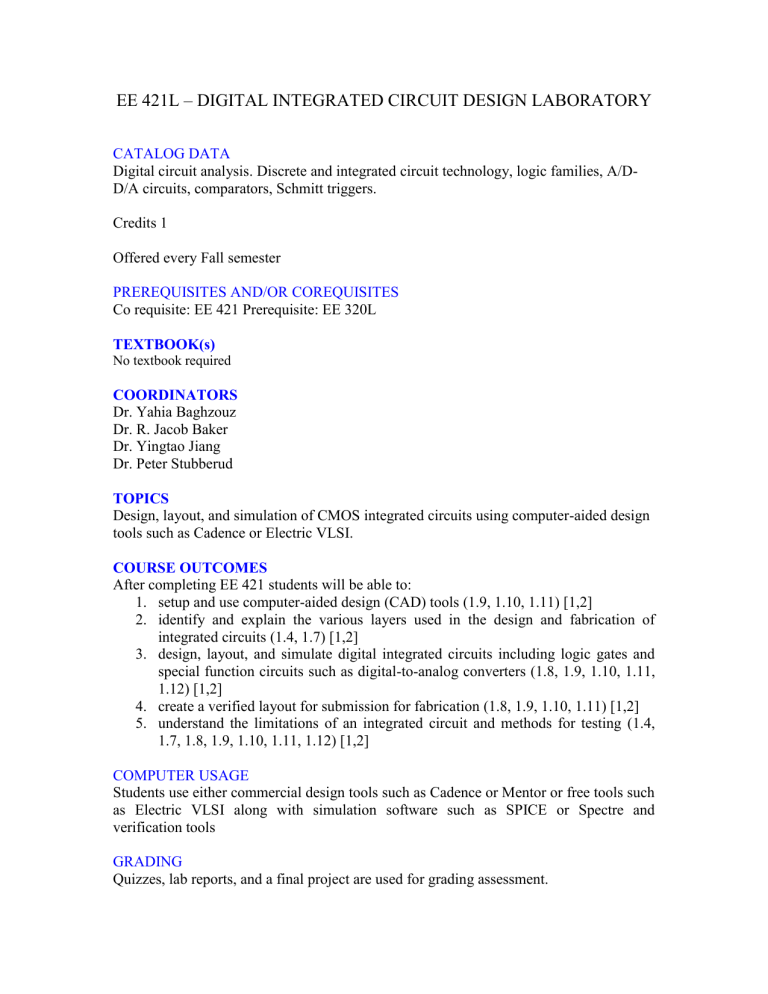
EE 421L – DIGITAL INTEGRATED CIRCUIT DESIGN LABORATORY
CATALOG DATA
Digital circuit analysis. Discrete and integrated circuit technology, logic families, A/D-
D/A circuits, comparators, Schmitt triggers.
Credits 1
Offered every Fall semester
PREREQUISITES AND/OR COREQUISITES
Co requisite: EE 421 Prerequisite: EE 320L
TEXTBOOK(s)
No textbook required
COORDINATORS
Dr. Yahia Baghzouz
Dr. R. Jacob Baker
Dr. Yingtao Jiang
Dr. Peter Stubberud
TOPICS
Design, layout, and simulation of CMOS integrated circuits using computer-aided design tools such as Cadence or Electric VLSI.
COURSE OUTCOMES
After completing EE 421 students will be able to:
1.
setup and use computer-aided design (CAD) tools (1.9, 1.10, 1.11) [1,2]
2.
identify and explain the various layers used in the design and fabrication of integrated circuits (1.4, 1.7) [1,2]
3.
design, layout, and simulate digital integrated circuits including logic gates and special function circuits such as digital-to-analog converters (1.8, 1.9, 1.10, 1.11,
1.12) [1,2]
4.
create a verified layout for submission for fabrication (1.8, 1.9, 1.10, 1.11) [1,2]
5.
understand the limitations of an integrated circuit and methods for testing (1.4,
1.7, 1.8, 1.9, 1.10, 1.11, 1.12) [1,2]
COMPUTER USAGE
Students use either commercial design tools such as Cadence or Mentor or free tools such as Electric VLSI along with simulation software such as SPICE or Spectre and verification tools
GRADING
Quizzes, lab reports, and a final project are used for grading assessment.
ABET COURSE OUTCOMES
1. The appropriate technical knowledge and skills:
4. an ability to apply knowledge of basic sciences,
7. an ability to apply knowledge of engineering,
8. an ability to design a system, component, or process to meet desired needs within realistic constraints,
9. an ability to identify, formulate, and solve engineering problems,
10. an ability to analyze and design complex electrical and electronic devices,
11. an ability to use the techniques, skills, and modern engineering tools necessary for engineering practice,
12. an ability to design and conduct experiments, as well as to analyze and interpret data.
UULO COURSE OUTCOMES
1. Intellectual Breadth and Lifelong Learning
2. Inquiry and Critical Thinking
3. Communication
4. Global/Multicultural Knowledge and Awareness
5. Citizenship and Ethics
COURSE PREPARER AND DATE OF PREPARATION
R. Jacob Baker, Wednesday, February 18, 2015
